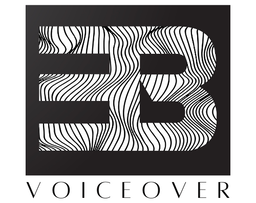|
As 2020 comes to an end, summaries abound along with year-end top [insert category] lists. Since I deal in words a lot, I love seeing what dictionary writers are saying. Merriam-Webster sums up 2020 by reporting its stats on definition searches. Some of their 2020 winners were: (not surprisingly) “pandemic”, “defund”, and “malarkey”. And since language is always evolving, there's always a handful of new words to add; some additions to the Oxford English Dictionary this year include “climate emergency” and “hellacious”. Now, I’m no dictionarian (is that a word yet?...it should be), but I’d say the word for 2020 was “pivot”. How many of us were forced to take a new direction this year? Maybe it was a relatively seamless change like going from in-person meetings to Zoom meetings. Or maybe it was a 180-degree career shift...or a company or product overhaul...or going from working parent to home-schooling parent (while still working)? The examples abound. There are lots of ways to wax poetic about change--anything to make the harsh reality of uncertainty a little bit more bearable. But what I like about “pivot” is that implicit in the word is a sense of groundedness, of stability. To pivot, you stay in one spot but swivel around that point where you are. When I think of a pivot in basketball, it’s that move where the player plants one foot firmly on the floor and steps around with the other foot looking for an opening. Sometimes it’s easy to feel planted, to see that we have everything we need to make a decision to go forward. If we’re lucky, we gain stability from knowing our gifts, our intelligence, our network, our curiosity, and our ingenuity have gotten us this far, and will surely get us a little further in whatever direction we choose. But sometimes we’re stuck...and maybe that’s the benefit of a word like “pivot”. Just like fear is a prerequisite for courage, some form of staying still, stopping dead in your tracks, or getting stuck in a rut is required for a pivot. I pivoted from opera singer to voiceover artist when the pandemic hit and I saw no hope of theaters reopening any time soon. The shut down of live performing arts forced my hand, but I had been in a rut with opera for a while, never having fully regained my sense of purpose in America after working in Germany where theaters were state-funded and opera tickets were the price of movie tickets. When I came to voiceover, it was on a whim that I might like to narrate audiobooks. Now I’ve done it all -- commercials, e-Learning, corporate videos, audiobooks, and documentaries, and I couldn’t be happier. I didn’t know my first lesson in voiceover techniques was going to lead me to my new career, but I do remember thinking after that first lesson that I had been training for this my whole life. That inner voice (as well as my actual voice) was my firmly planted foot that I hadn’t realized I was standing on. I don’t even know how long I’d been looking for an opening, but when it presented itself, I pivoted and went for it. Sometimes the only choice we have is to find a new direction, forge a new path, or reinvent ourselves, but maybe the word “pivot” with its implicit anchoring in what you know to be true about yourself is helpful when framing your circumstances, and weighing the choices you in front of you. If you’ve pivoted this year, I’d love to hear about it. What have you learned about yourself in the process?
1 Comment
Which to you fear more: public speaking or death? I’ve never seen the survey, but the story goes, more Americans are afraid of public speaking than they are of death. It goes by many different names--public speaking anxiety, stage fright, the jitters, performance anxiety, the yips. No matter what you call it, and no matter who you are be it CEO, athlete, or actor, it’s an unsettling feeling.
As a voiceover artist and opera singer, I’ve had years of experience staring the proverbial tiger in the eye. Sometimes I’ve “fought my fear and won” (as one book called it), other times I’ve seen fear stop me from trying, sabotage my performance, or just zap all my enjoyment from the experience. There have been thousands of books written on the topic of performance anxiety, and believe me, I’ve read a lot of them. I'd say that for the most part, the topic, “How to overcome your fear of putting yourself out there,” boils down to learning to have compassion for yourself while you’re having an uncomfortable bodily experience. I could have listed 50 things, but here are 4 ideas to start with. See if they resonate with you and feel free to leave a comment or question below.
Fear of performing is not something you overcome or outgrow, it’s something you befriend. As long as you are doing new things that challenge you and push you to the edge of your comfort zone, you’re going to deal with fear. With more attentiveness to your body and mind, symptoms like clammy hands and a thumping heart can be seen as your body telling you it’s at attention because it knows this thing you’re doing matters a lot, not that it wants you to run out of the room screaming. Take a moment or two to gather your focus and attend to your body and mind before that important presentation or performance. I hope you notice some compassion for yourself that maybe wasn't there the last time you played at the fringes of your comfort zone. |
Erica BrookhyserVoice Over Artist and Opera Singer with 15 years experience finding music in words and bringing words out in music. May this blog turn up the volume on your own heart-song! ArchivesCategories |
www.EricaBrookhyser.com | Voice Actor + Opera Singer | Erica@EricaBrookhyser.com | +1 617.849.4617 (ET)
 RSS Feed
RSS Feed

